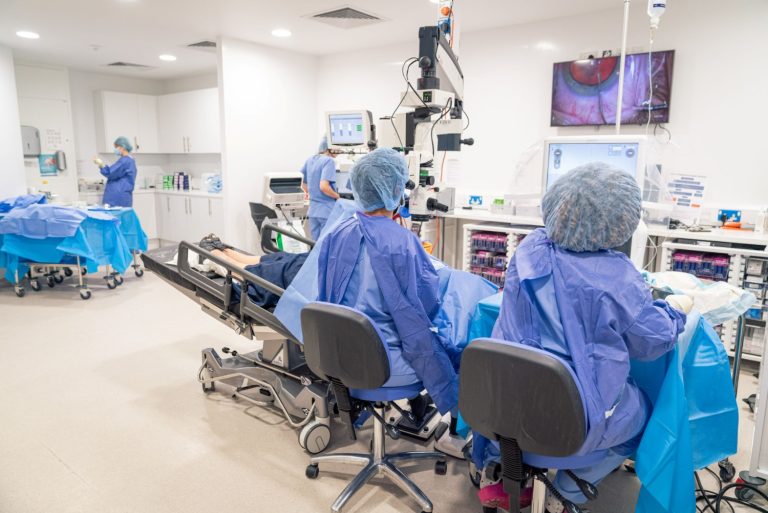SpaMedica has marked a milestone with the graduation of its latest ‘Class of 2024’ from its innovative Surgical Training and Education Programme for Surgeons (STEPS). This new cohort of trainees will now embark on their careers in ophthalmology across SpaMedica’s network of hospitals nationwide.
At the heart of this programme is ophthalmic surgeon Mfazo Hove, who has dedicated two days a week to training the next generation of cataract surgeons. Over the past year, Mr Hove has overseen the completion of more than 500 cataract surgeries by his trainees, an achievement reflecting his hands-on approach to teaching and mentorship. With nearly 20,000 cataract procedures under his belt, 99.7% of which were complication-free, Mr Hove’s experience is invaluable to the programme, which aims to equip trainees with both technical skills and the bedside manner needed for successful patient care.
Mr Hove’s commitment to teaching was inspired by his own experience as a surgical trainee, when, after months of theoretical training, he was given his first opportunity to perform surgery. Reflecting on this, Mr Hove emphasises the importance of trust between trainer and trainee. “The biggest thing I learned was that if you show your trainees you believe in them, they perform so much better,” he says.
His belief in the potential of his trainees was tested when he required cataract surgery himself. After using steroid eye drops to treat a condition, Mr Hove entrusted one of his former trainees to perform the surgery. “Knowing that somebody I trained could do my cataract surgery meant I went into theatre feeling completely relaxed,” he shares. “It’s the ultimate satisfaction.”
The teaching approach at SpaMedica is tailored to each individual trainee. Mr Hove notes that there is no one-size-fits-all method in training. Some trainees need more direct guidance, while others work best with more space and independence. This personalised approach, he says, not only boosts performance but also builds confidence.
Mr Hove also stresses the significance of patient care in the training process. He believes that surgical outcomes are only part of the equation—bedside manner and the ability to connect with patients are equally crucial. “It’s my job to make sure that when my trainees operate, patients receive an excellent outcome and feel cared for throughout the process,” he explains.
SpaMedica’s STEPS programme aims to exceed the Royal College of Ophthalmologists’ training standards, with 25 locations nationwide and more planned for the future. Dr Alex Silvester, SpaMedica’s chief medical officer, praised Mr Hove’s contribution, stating that his personalised mentorship and high standards are key to ensuring the next generation of ophthalmologists is well-equipped to meet the demands of the profession.
As Mr Hove celebrates his first year as a teacher, the success of his trainees serves as a testament to his dedication and the impact of compassionate, personalised teaching in shaping the future of ophthalmology. For more information about the scheme, visit www.spamedica.co.uk



